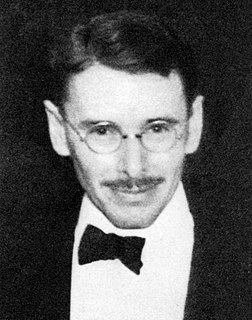A Quote by Daniel Dennett
Up till now, we can suppose, nervous systems solved the 'Now what do I do?' problem by a relatively simple balancing act between a strictly limited repertoire of actions - if not the famous four F's (fight, flee, feed, or mate), then a modest elaboration of them.
Related Quotes
Clipper took a relatively simple problem, encryption between two phones, and turned it into a much more complex problem, encryption between two phones but that can be decrypted by the government under certain conditions and, by making the problem that complicated, that made it very easy for subtle flaws to slip by unnoticed. I think it demonstrated that this problem is not just a tough public policy problem, but it's also a tough technical problem.
We took over with 'Leverage' three warehouses, and now four with 'The Librarians,' and turned them into proper sound stages with sound doors and all the lights. We now have control of four real, proper-sized sound stages. The problem is they're dark and empty half of the year because there aren't enough productions coming into Oregon.
If God 'foresaw' our acts, it would be very hard to understand how we could be free not to do them. But suppose god is outside and above the Time-line... You never supposed that your actions at this moment were any less free because God knows what you are doing. Well, He know your tomorrow's actions in just the same way--because He is already in tomorrow and can simply watch you. In a sense, He does not know your action till you have done it: but the moment at which you have done it is already 'NOW' for Him.









































